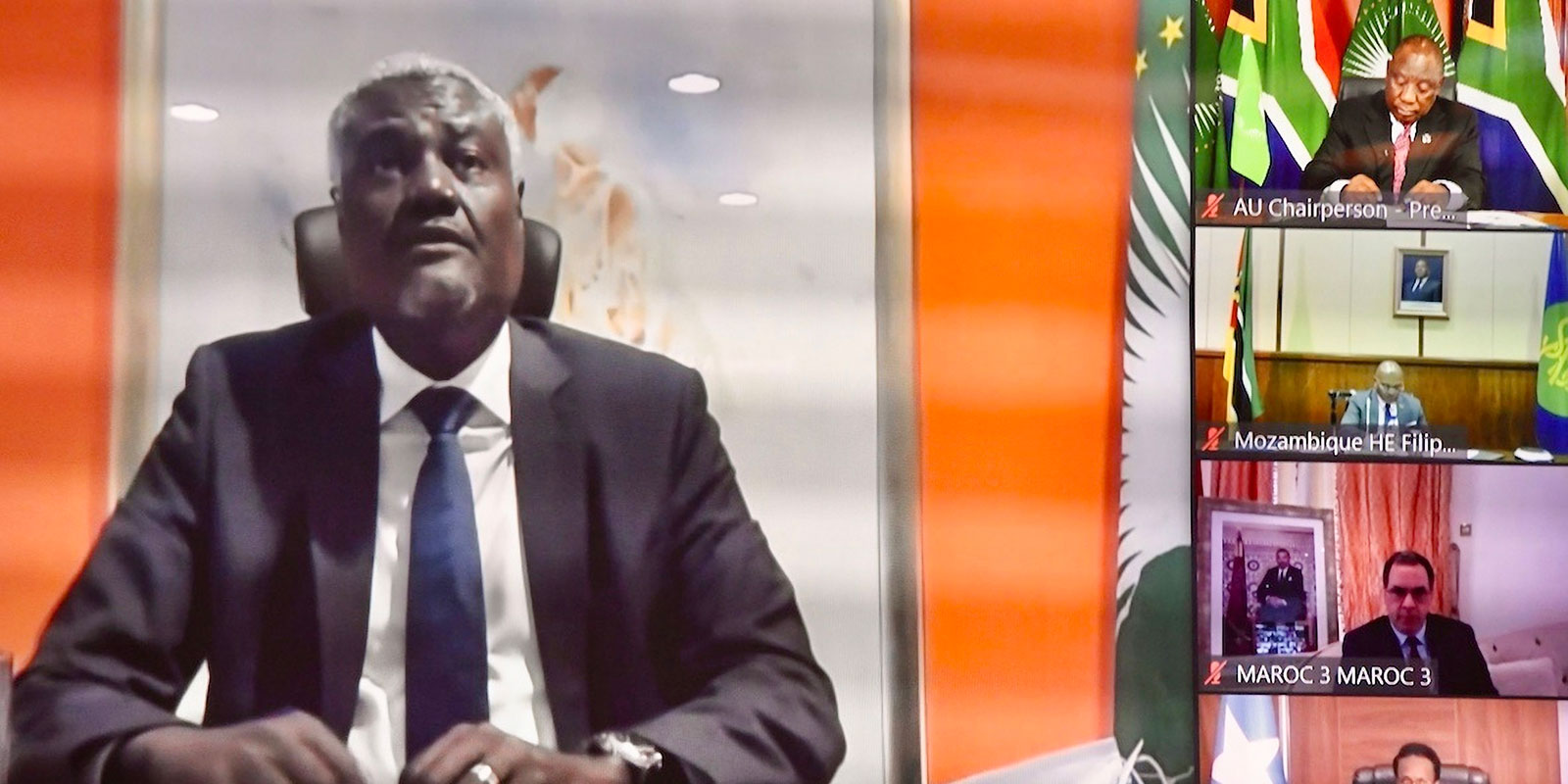The election of Dr. Monique Nsazabaganwa, as deputy chairperson, is particularly significant for gender equality. According to the new system, if the chairperson is a woman the deputy has to be a man, and vice versa. As the current chairperson, Moussa Faki Mahamat, was re-elected for a second term, the deputy chairperson had to be a woman. They also have to be from different regions. The chairperson is from Chad which is in the central region. There were three candidates for the deputy chairperson position, but the other two (Martha Pobee of Ghana and Fatmatou Jalloh of The Gambia) had to withdraw because they were both from West Africa, and the Economic Community of West African States (ECOWAS) decided to prioritise their candidacy for the new combined Commissioner for Political Affairs and Peace and Security post. Her election thus shows that in addition to her competence, the process also upheld the principles of regional balance and rotational gender parity.
The @_AfricanUnion is the only organization of its kind to have adopted and implemented rotational regional and gender parity principles for the election of its top leadership team #AUsummit2021 @LindaDarkwa
Tweet
The entire leadership of the AUC takes up their position at a very crucial time in the history of the organisation when significant progress has been made with regard to the administrative and institutional reforms. As the chief operating officer of the Commission, most of the weight of the institutional reforms lies with the deputy chairperson. There are two outstanding tasks in the administrative reform roadmap that the incoming deputy chairperson will inherit. These are the development and implementation of an E-procurement system and the construction of a new building for the headquarters of the Africa Centres for Disease Control and Prevention (Africa – CDC).
Institutional reform
The progress report on the institutional reforms provides an indication of the tasks of the deputy chairperson in the short term. The first is the continued efforts for sustainable financing of the AUC to further reduce the over-dependence on external funding for programme budgets. Second is the implementation of the recommendations of the Forensic Audit. The third is a call for the completion of the implementation of the institutional reform mandate. Even though this is a tall order, it is perhaps the third task that may be the most difficult to implement.
The merger of the Political Affairs and the Peace and Security departments has to be managed particularly well. Already, there is considerable push back on the structure of the merged departments mainly because of a perception of limited consultation. One of the main considerations of the reform was to ensure that the AUC is fit for purpose and performance-oriented. Yet, there are concerns over the lack of alignment between the proposed units in the new structure and the peace and security architecture on the one hand, and governance on the other. There also appears to be a lack of clarity on the process for managing the expected redundancies as a result of the changed staffing requirements.
The election of @mnsanzabaganwa as the deputy chairperson of the @_AfricanUnion shows that in addition to her competence, the new reform process also introduced and upheld the principles of regional balance and rotational gender parity #AUsummit2021 @LindaDarkwa
Tweet
Develop strategies to deepen the buy-in of the reforms at the level of the Commission.
One of the main tasks of the deputy chairperson should be the development of strategies to deepen the buy-in of the institutional reforms at the Commission-wide level, and to provide some assurance that as a process, there could be room to consider the concerns of the various constituencies. Being able to effectively implement the institutional reforms goes beyond the restructuring of the Commission, to building an organisational culture that facilitates the buy-in of the technocrats, who support the reform agenda.
Guarantee Transparency
Addressing the challenges in recruitment and performance management within the Organisation requires integrity and transparency to deal with the perceptions of bias that have characterised the Union for several years. As part of the first steps for the implementation of the merger, particularly as it relates to the rationalization of positions in the new structure, there is a need to fill all vacant positions in a merit-based transparent process that inspires confidence. It must be noted that notwithstanding the political buy-in of the reforms, perceptions of bias, particularly in the implementation of the recruitment and appointments of Commission staff, could elicit a backlash that could derail the agenda.
Conclusion
There is a need for an articulated process flow that guides the approach for the implementation of the institutional reforms at the level of the Commission. In particular, it is necessary to show the extent to which the efforts at the level of the Commission are envisaged to interact with the relevant policy organs to better support the implementation of their mandates. For instance, it would be worthwhile to demonstrate how the reform translates into a better implementation of the Peace and Security Council’s conflict prevention efforts. To this end, whilst applauding the urgency that has characterised the AU’s reform process, it is equally important to consider the implementation of the institutional reforms as a process so that the right attitudes can be nurtured to sustain these efforts. In this context, the election of the new leadership team of the African Union Commission is an inspiring milestone. The AU is the only organisation of its kind to have adopted and implemented such transparent regional and gender parity principles for the election of its top leadership team.
Linda Darkwa is the coordinator of the Training for Peace Programme, a Norwegian funded capacity support programme to the African Union Commission, and a Senior Research Fellow at the Legon Centre for International Affairs and Diplomacy.


